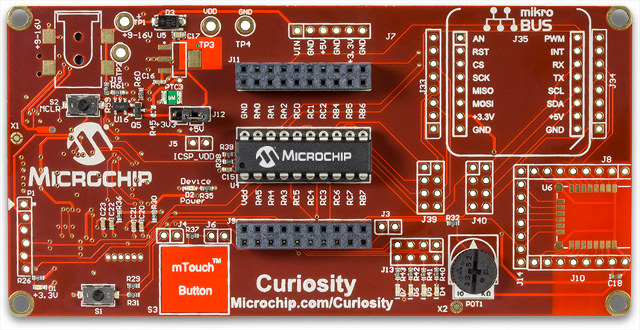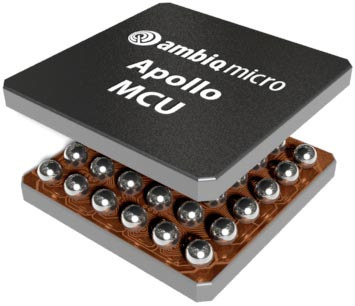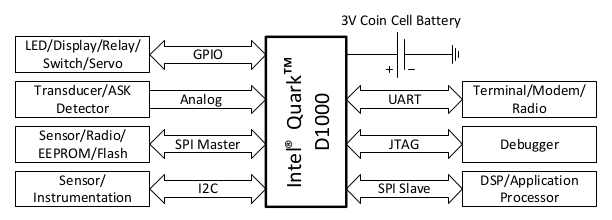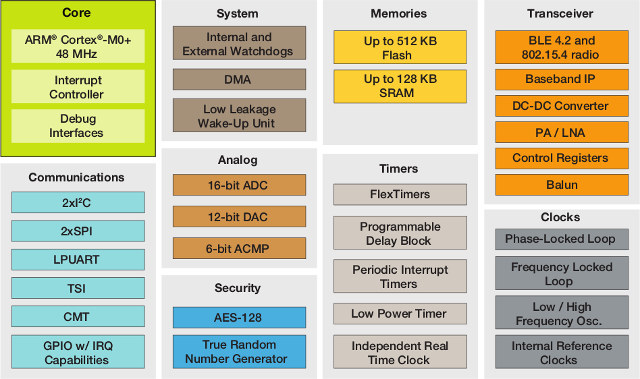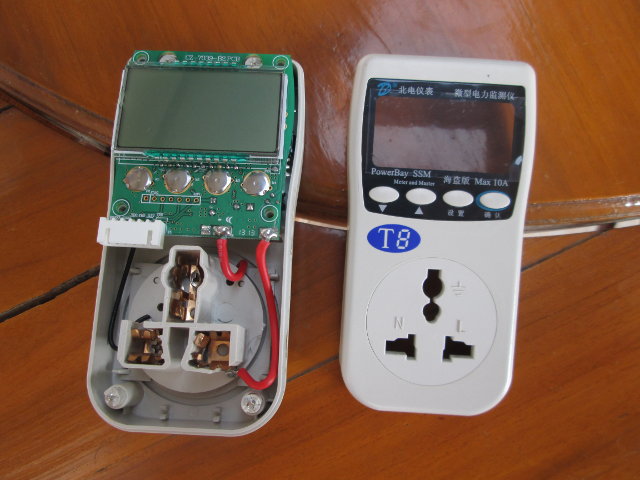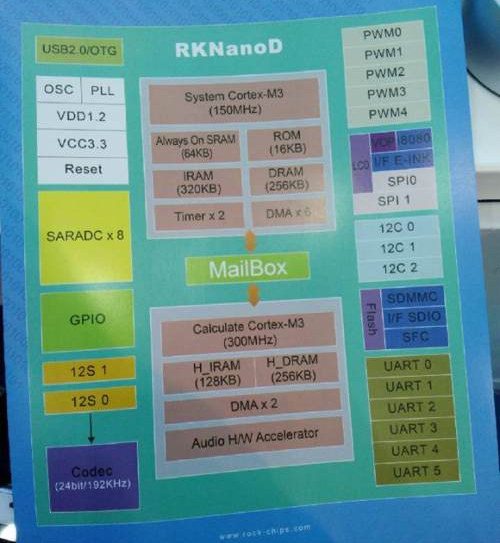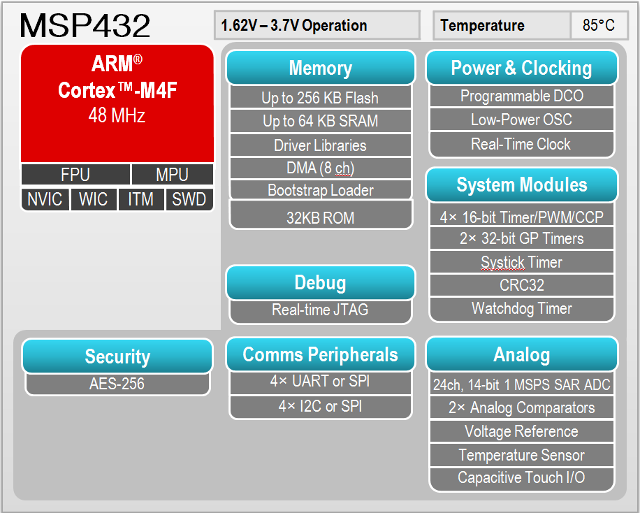I’ve just found out Microchip had introduced Curiosity development board a little while ago, in order to let students and others experiment with their 8-bit PIC DIP MCUs, and including MikroElectronika Mikrobus footprint, an interface for Microchip RN4020 module to add Bluetooth Low Energy, as well as other headers and some extra features like buttons, and a potentiometer. Microchip Curiosity board specifications: MCU – PIC MCU socket for 8, 14, and 20-pin micro-controllers with PIC16F1619 pre-installed. Expansion mikroBUS Click Board footprint Microchip RN4020 Bluetooth Module Footprint USB – USB mini-B connector Misc – Master Clear Reset button, potentiometer, LEDs, mTouch button, push button Power Supply 5V via USB 9V using an external power supply (footprints only) 3.3V to 5V external power supply via TP3 and TP4 pins Dimensions – N/A There are over 160 MikroElektronika Click boars on the market now, but only seven are listed with code samples for […]
Ambiq Micro Apollo Low Power MCUs Promise Cortex M4F Performance at Cortex M0+ Energy Efficiency
Ambiq Micro is a US company founded in 2010 that focuses on “extremely low power” semiconductors leveraging their patented Subthreshold Power Optimized Technology (SPOT) platform. Earlier this year, they announced their first low power Cortex-M4F MCU Apollo family with claims of 5 to 10 times lower power consumption compared to other micro-controllers with the same performance. According to an EETimes article, they’ve at least partially backed their claims with a live demonstration at ARM TechCon 2015. Before checking out the test results, let’s have a look at the main features of Apollo MCU family: 32-bit ARM Cortex-M4F processor @ up to 24 MHz, with FPU, and wake-up interrupt controller with 12 interrupts Up to 512KB flash, 64-KB low-leakage RAM “Rich set of timing peripherals” Peripherals I2C/SPI master; I2C/SPI; UART; 10-bit, 13-channel, 1MS/s ADC Temperature sensor with ±2°C accuracy Voltage Range – 1.8 to 3.8V Power Consumption: active mode: 30µA/MHz (executing […]
Intel Unveils Three New Micro-controllers for IoT: Quark D1000, Quark D2000, and Quark SE
Intel’s subsidiary, Wind River, has recently announced two operating systems for the Internet of things with Rocket RTOS and Pulsar Linux supported respectively by Quark MCUs, and Intel Atom processors, as well as some ARM SoCs. But it’s not the only “IoT” announcement made by Intel in the last week, as I found out via EETimes that the company also unveiled three new Quark SoCs, namely Quark D1000, and Quark D2000, and Quark SE. Intel Quark D1000 Contrary to previous Quark processor and the upcoming D2000 and SE processors, D1000 is not compatible with x86 instructions set, and features the following: 32-bit Harvard CISC CPU @ 33 MHz with single cycle barrel shifter, two cycle multiplier, multi-cycle divider, integrated 32-bit timer, programmable interrupt controller, and JTAG debugger. 128-bit wide 32 kB code flash and 8 kB ROM 32-bit wide 8 kB SRAM and 4 kB data flash Osciallators 20-33 MHz […]
Freescale Kinetis KW41Z Wireless MCU Supports Bluetooth 4.2, Zigbee, and Thread
Freescale has unveiled a new wireless micro-controller part of their Kinetis MCU family with Kinetis KW41Z, based on an ARM Cortex M0+ core, and supporting both the latest Bluetooth 4.2 specifications, as well as a 802.15.4 radio allowing support for Zigbee and Thread. Kinetis KW41Z main features and specifications: ARM Cortex-M0+ core @ 48 MHz, with up to 512 KB Flash memory, up to 128 KB SRAM, and an integrated balun Multi Protocol Radio 2.4 GHz radio, Bluetooth Low Energy 4.2 compliant IEEE 802.15.4-2011 standard compliant radio Receiver Sensitivity (Typ.) – BLE: -96 dBm; 802.15.4: -102 dBm Programmable Transmitter Output Power up to +4 dBm I/Os – 2x I2C, 2x SPI, LPUART, TSI, CMT and GPIOs with interrupt capabilities Analog modules – 16-bit ADC, 12-bit DAC, 6-bit High Speed Analog Comparator (CMP) Security – AES-128 Accelerator (AESA), True Random Number Generator (TRNG) Operating Voltage Ranges Bypass Voltage: 1.71V to 3.6V […]
ATT7039AU Micro-controller Features an Energy Meter Unit for Power Meters
About two years ago, I purchased Northwest T8 power meter, and it worked fine for about three months, but one day the top plastic broke as as unplugged it, rubber bands prolonged its life for a few more weeks, but eventually the display stopped working, and keep it in my drawer for long while, until today, when I decided to have a closer look at how it was done. The PCB is called CZ-7039-B2, and the top includes the display, 4 user buttons, as well as JTAG through holes (P2) and 2.54mm header (P1) with TDO, TMS, GND and 3.3V signals, as well as a pin called P1600, but I still haven’t found out what it might be for. I’ve also taken the board out completely, to find out everything is basically handled by a single 48-pin chip called ATT7039AU. After a Google search, I quickly found out the chip […]
ARM: “Microcontrollers Are Better Because There’s No GPL”
[Update: ARM has pulled down the video and issued a statement] ARM has uploaded a video today entitled “Microcontrollers for Makers” showing the benefits of using micro-controller boards instead of processor based development boards such as Raspberry Pi or ODROID-C1, and their four first points are right on target, but the last one, as mentioned by Olimex, is completely wrong, and already made several people upset. Let’s go through the first four points: Micro-controllers are more energy efficient, so if your project is requires years on a cell-coin battery, MCUs are the way to go. MCU are cheaper too, now you can even get an MCU board for $1. They are smaller. The chip shown on the golf ball is Kinetis KL03 If you need real-time I/O, processors can’t beat micro-controller, that why people decide to connect an Arduino board to their Raspberry Pi, or products like UDOO Neo are […]
Rockchip RKNanoD is a Dual Core Cortex M3 MCU for IoT and Audio Applications
Rockchip is better known for their application processor like RK3188 or RK3288 found in tablets and mini PCs, but the company is also making lower power SoCs such as RKNanoC Cortex M3 micro-controller used in wireless audio applications, and more recently Rockchip demonstrated RKNanoD, a dual core Cortex M3 micro-controller for IoT and high-definition audio applications. Some key specifications and features of RKNanoD MCU: Cores ARM Cortex M3 @ 150 MHz with 64KB SRAM, 16KB RAM, 320KB iRAM, 256KB DRAM for system. ARM Cortex M3 @ 300 MHz with 128KB iRAM, 256 KB DRAM, and an audio H/W accelerator for compute tasks like audio decoding. Storage I/F – Flash, SDMMC, SDIO, SFC Display I/F – LCD, E-Ink Audio – 2x I2S, 24-bit / 192 KHz audio codec USB – USB 2.0 OTG Other I/Os – GPIO, 6x UART, 2x SPI, 3x I2C, 5x PWM, 8x SARADC 8x DMA, 2x Timers […]
Texas Instruments Introduces MSP432 ARM Cortex-M4F MCU Family
Texas Instruments has just launched a successor for its 16-bit MSP430 MCU family with MSP432 MCU series featuring a 32-bit ARM Cortex-M4F core, a DSP, up to 256 KB flash, up to 64 KB SRAM, and according to the company ” delivering a ULPBench score of 167.4 outperforming all other Cortex-M3 and -M4F MCUs on the market”. The new MCU family targets consumer & portable electronics, building & factory automation & control, smart grid & energy, healthcare & fitness, and wearables applications. Key features listed for MSP432P4xx: MCU – 32-bit ARM Cortex-M4F up to 48 MHz with FPU and DSP. Delivers 3.4 Coremark/MHz Memory – Up to 64 KB RAM; Selectable RAM retention Storage – Up to 256 KB Flash; dual bank for simultaneous reading and writing Security – 256-bit AES encryption, JTAG access lock, 4 IP Protection regions EnergyTrace Technology Real-time power measurement and debugging Generate application energy profiles including […]


